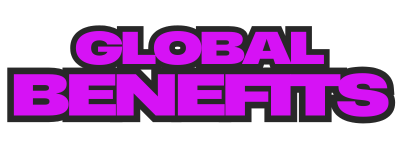The Top Free Academic Tools You Haven’t Tried Yet – and Why You Should
Researchers and students often struggle to balance writing quality with efficiency. Many spend hours searching for digital solutions that streamline workflows without draining budgets. While countless platforms promise results, few deliver genuine value for long-term projects.
The right resources can transform how scholars approach tasks like collaboration or data organization. Yet tool fatigue remains a growing issue—users frequently abandon software after brief trials, wasting precious hours better spent on actual research. This cycle leaves many unaware of hidden gems that offer professional-grade support.
Strategic selection matters more than quantity. A curated collection of 19 vetted writing aids exists, tested by global academic communities. These platforms address critical needs: tracking project timelines, refining phrasing, and managing multilingual work. Some even include optional upgrades for advanced features.
This guide focuses on underutilized options that boost productivity while respecting financial constraints. It highlights solutions proven to reduce distractions and help scholars focus on what truly matters—advancing their work efficiently.
Introduction: Navigating Academic Tool Options
Scholars face an ever-growing maze of digital resources promising to enhance their workflow. Over 70% report feeling overwhelmed by the sheer volume of available platforms. This confusion often leads to wasted time testing tools that don’t align with actual research goals.
Effective solutions fall into eight core categories:
| Category | Primary Use | Key Features |
|---|---|---|
| Collaboration Suites | Team projects | Real-time editing, version control |
| Data Organizers | Research analysis | Tagging systems, cross-platform sync |
| Writing Enhancers | Manuscript drafting | Style guides, plagiarism checks |
Three critical questions help filter options: Does it solve a specific problem? Can it integrate with current workflows? Will it remain useful through a project’s lifecycle? Nigerian researchers particularly benefit from platforms requiring minimal bandwidth.
Modern tools now address traditional hurdles like citation formatting and multilingual collaboration. For instance, some automatically adapt interfaces for Yoruba or Hausa speakers. This evolution makes selecting the right resources less about features and more about strategic fit.
Prioritize platforms offering trial periods or modular pricing. As one librarian at UNILAG notes: “The best solutions become invisible—they simply let the work happen.” Focus on options that reduce friction rather than adding complexity.
The Importance of Free Online Academic Tools for Academic Success
Accessible digital solutions now level the global playing field for scholars. These platforms empower users to achieve professional results without institutional budgets. A Lagos-based researcher notes: “What took weeks in library archives now happens in minutes with smart search filters.”
Expanding Investigative Potential
Modern platforms provide features once exclusive to well-funded universities. Users access cross-disciplinary databases and visualization dashboards. This table shows key improvements:
| Research Aspect | Traditional Approach | Current Solutions |
|---|---|---|
| Source Access | Limited physical archives | 250M+ searchable papers |
| Data Organization | Manual note sorting | Auto-tagging systems |
| Citation Management | Handwritten references | 10,000+ style automation |
Elevating Manuscript Standards
AI-driven editors now catch subtle language issues beyond basic grammar checks. They analyze context to suggest discipline-specific phrasing. For multilingual scholars, these systems adjust recommendations based on cultural communication norms.
Collaboration features further enhance output quality. Real-time editing and commenting streams reduce email clutter. As project teams grow, version histories prevent conflicting drafts. One Nigerian PhD candidate reports completing thesis revisions 40% faster using shared annotation tools.
Free Online Academic Tools: A Comprehensive Overview
Digital innovation offers precise instruments for every stage of scholarly work. Nine core categories form the backbone of modern workflows, each addressing distinct challenges in knowledge creation and dissemination.
Diverse Tools for Every Need
Specialized platforms adapt to various phases of projects. Content curation systems help gather sources, while design software transforms raw data into visual arguments. Consider these primary groups:
| Category | Impact Area | Key Benefit |
|---|---|---|
| Collaboration Suites | Team Projects | Live document editing |
| Data Organizers | Research Analysis | Smart tagging |
| Multilingual Editors | Writing Quality | Cultural context checks |
Exploring Tool Categories
Many platforms now combine multiple functions. A citation manager might integrate with cloud storage, while presentation software could include analytics dashboards. This interconnectedness reduces app-switching fatigue.
When evaluating options, prioritize solutions offering cross-device synchronization. Nigerian scholars particularly benefit from lightweight software that functions smoothly on mobile networks. Always test free versions before considering premium upgrades.
“The best resources become extensions of your thinking process,” notes a Lagos University tech coordinator. Focus on platforms that simplify complex tasks without demanding constant attention to their interfaces.
Innovative Writing, Citation and Editing Platforms
Modern academic demands require precision tools that adapt to complex writing processes. Three solutions stand out for enhancing scholarly communication while maintaining natural workflow rhythms.
Paperpal: Context-Aware Editing
This platform integrates directly into Microsoft Word and Overleaf, offering real-time suggestions during drafting. Unlike basic grammar checkers, it analyzes sentence structure against 250 million research articles. Users receive discipline-specific recommendations for technical terms and citation formatting across 10,000+ styles.
Nigerian researchers benefit from Paperpal’s multilingual support. It detects subtle phrasing issues common among non-native English speakers, proposing alternatives that preserve intended meaning. “The feedback feels like having a co-author who knows my field,” notes a Lagos-based engineering doctoral candidate.
Writefull & Academic Phrasebank
Writefull uses AI trained on published papers to improve academic tone. Its Overleaf plugin highlights awkward constructions and suggests data-backed revisions. For example, it might adjust passive voice in methodology sections or recommend stronger verbs for conclusions.
The Academic Phrasebank solves writer’s block with categorized expressions. Organized by paper sections like “literature review” or “results discussion,” it provides templates for complex arguments. Researchers at Nigerian institutions report spending 35% less time structuring manuscripts when using these pre-validated phrases.
These platforms work best when complementing—not replacing—critical thinking. Set weekly goals to review suggestions rather than accepting them automatically. This balance maintains original voice while leveraging AI efficiency.
Effective Collaboration and Project Management for Researchers
Modern research teams achieve breakthrough results when using structured platforms that synchronize complex workflows. These solutions transform isolated tasks into coordinated efforts, particularly for Nigerian scholars managing international partnerships across time zones.
Authorea and Overleaf Collaborative Suites
Authorea acts as a shared workspace for scientific writing. Multiple authors can edit manuscripts simultaneously while tracking changes and inserting citations. Its version history feature prevents conflicting drafts—a common issue when emailing documents.
Overleaf simplifies LaTeX document collaboration. Researchers at Nigerian universities use its commenting system to refine technical papers. The platform maintains formatting integrity, crucial for publishing in math-heavy disciplines. “We finalize complex equations faster without losing team input,” shares a Lagos physics researcher.
Trello and Todoist for Workflow Management
Trello’s visual boards help teams map publication pipelines. Customizable lists track tasks from data collection to peer review stages. Users assign deadlines and attach files directly to cards, reducing email clutter.
Todoist offers streamlined task organization. Research groups set recurring reminders for literature reviews or conference submissions. Its priority tagging system helps manage overlapping project phases effectively.
Key benefits of these platforms:
- Real-time updates keep global teams aligned
- Centralized feedback reduces miscommunication
- Access controls protect intellectual property
When implementing collaborative systems, establish clear guidelines for attribution. Schedule weekly syncs to resolve conflicting edits while respecting diverse perspectives.
Time-Saving Transcription and Note-Taking Solutions
Transcribing interviews and lectures remains a tedious hurdle in research workflows. AI-powered systems now convert spoken words into searchable text with surprising speed, letting scholars focus on analysis rather than manual typing. These innovations prove particularly valuable for teams documenting field studies or multilingual discussions.
Otter’s Real-Time Conversion
Otter processes 300 minutes of audio monthly at no cost, generating instant transcripts during live conversations. Researchers report saving 15+ hours weekly by using its voice-to-text features for interviews and brainstorming sessions. “It captures key points even when participants speak quickly,” notes a Lagos sociology PhD candidate.
Accuracy varies with recording quality and accents. While the tool handles Nigerian English reasonably well, technical terms or regional dialects may require manual corrections. Background noise reduction techniques help—position microphones closer to speakers and minimize interruptions.
Beyond basic transcription, Otter enables:
- Keyword searches across multiple recordings
- Speaker identification for group discussions
- Cloud sync for team access
For complex projects, combine automated outputs with human verification. Export transcripts to qualitative analysis software to identify patterns faster. This hybrid approach maintains data integrity while accelerating discovery timelines.
Multilingual and Translational Tools for Academic Writing
Language differences often create invisible walls in global research partnerships. Specialized platforms now bridge these gaps by combining precise translation with cultural awareness. These solutions help scholars maintain their unique voice while meeting international publication standards.
Linguee for Accurate Translation
Linguee stands out by analyzing billions of existing translated texts from reputable sources. This approach ensures context-appropriate suggestions for phrases and idioms. A Nigerian pharmacology researcher notes: “It captures the nuance of medical terms better than standard dictionaries when translating Yoruba clinical trial notes.”
The platform supports 25+ language pairs with English. Unlike word-for-word converters, it preserves scholarly tone in complex sentences. This proves vital when interpreting indigenous knowledge systems for international journals.
Thesaurus and Phrasebank Support
Thesaurus.com helps avoid repetitive language without sacrificing clarity. Its color-coded relevance indicators guide users toward the most precise synonyms. Academic Phrasebank offers structured templates for common manuscript sections.
Key benefits include:
- Discipline-specific expressions for literature reviews
- Cross-cultural communication guidelines
- Examples from published papers in multiple languages
Researchers should use these aids as starting points rather than final solutions. Regular review by human editors ensures translations maintain original research intent. This balanced approach builds language skills while streamlining publication workflows.
Engaging Visual Learning and Communication Resources
Visual methods transform how research teams share complex ideas across distances. These resources simplify feedback loops while maintaining human connection—a critical factor for Nigerian scholars coordinating with global partners.
Loom for Quick Video Explanations
Loom’s screen recording feature lets researchers demonstrate processes visually. A 90-second video often replaces lengthy email chains. “It’s like having a conversation without scheduling calls,” shares a Lagos-based project lead. Nigerian teams use it to document lab procedures or clarify data visualization choices.
Slack for Streamlined Team Communication
Slack organizes discussions into topic-specific channels. Its integration with cloud storage platforms keeps files accessible during debates. Research groups report 30% fewer meetings when using threaded replies for focused problem-solving.
Key benefits include:
- Video annotations for precise feedback
- Searchable message archives
- Custom alerts for urgent tasks
These solutions thrive when aligned with team habits. Rotate moderators for Slack channels to maintain engagement. Pair Loom clips with text summaries for colleagues with limited bandwidth. Strategic use enhances both productivity and collaborative experience.
FAQ
How do AI-powered platforms like Paperpal improve academic writing?
What makes Overleaf a preferred choice for collaborative research projects?
Can tools like Otter.ai replace traditional note-taking methods?
Why use Linguee for multilingual academic work instead of standard translators?
How does Trello enhance workflow management for researchers?
Are video tools like Loom effective for academic communication?
Published on: 28 de July de 2025





